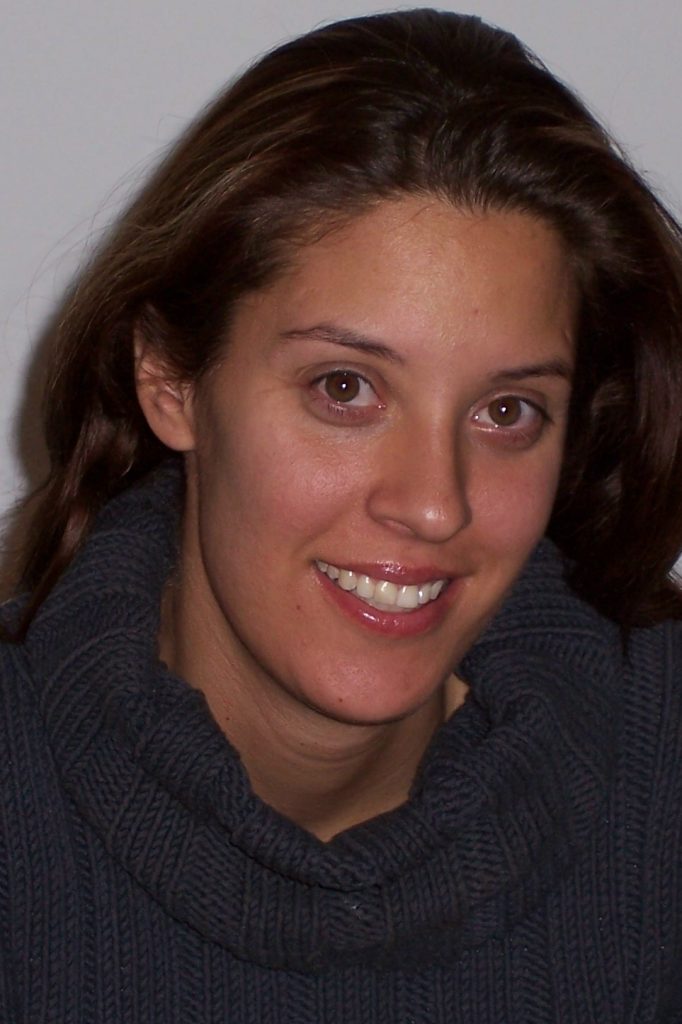Anita Kaiser
“You have to love what you do”: Vanier Canada Graduate Scholar Anita Kaiser on her return to academia

Anita Kaiser still gets teary-eyed when she talks about her Vanier Canada Graduate Scholarship. The 49-year-old PhD student had taken a decade-long break from academia after her master’s program and was struggling a bit with imposter syndrome. But the prestigious multi-year scholarship, with its three-tiered judging process (department-wide, university-wide, and nation-wide), has boosted her confidence.
“I’m just so honored that I was selected,” she says. “I feel like this is where I’m meant to be, doing exactly what I’m meant to be doing.”
The rehabilitation sciences student will use her funding to carry out research on activity-based therapy (ABT), an emerging physiotherapy practice focused on neuromuscular recovery for people living with spinal cord injuries (SCI).
It’s a project with deep personal resonance for Kaiser, who suffered a severe spinal cord injury in a car crash in 1996. The longtime science buff had just graduated from Ryerson University with a degree in applied chemistry and biology; she planned to study occupational therapy or physiotherapy or find an industry job in research and development. But the accident rendered her quadriplegic.
“It was life-changing,” she recalls. “I was in a wheelchair and had to spend a year in rehab.”
During that year at Toronto Rehabilitation Institute’s Lyndhurst Centre, Kaiser began looking into the research on SCI. “Is there any hope and chance of a recovery? What are the therapies that are out there? What can we do to improve the lives of people with spinal cord injuries?”
Her new interests led her to a research assistant role at Lyndhurst under the supervision of Dr. Beverly Catharine Craven and then to a master’s program in rehabilitation sciences at U of T. But it wasn’t until 2014 that she happened upon her real passion: activity-based therapy (ABT).
Unlike conventional physiotherapy approaches, ABT is a rehabilitation program that focuses on neuro-recovery, or rebuilding the connection from the brain to the rest of the body, past the point of the spinal cord injury. Where traditional physiotherapy—like the kind Kaiser received—focuses on compensatory strategies for the loss of motor function, ABT works to help people with SCI slowly recover the function in their limbs. For Kaiser, who had been told she would never walk again, the therapy held great promise.
Soon, Kaiser was attending a three-hour bootcamp once a week at Walk It Off: Spinal Cord Recovery and Wellness Centre, where she began to work on standing, getting on to her hands and knees, and crawling. As a therapist moved her limbs through a range of motion, Kaiser would try to connect with the movement mentally. The focus required was exhausting. “The best way I can describe it is like being in a room in the dark, and trying to feel along the wall for the light switch. You know it’s there, but you have to find it. Mentally you’re giving it 150 per cent.” To Kaiser’s amazement, the weekly sessions started to pay off.
For her PhD, Kaiser, who has a thirteen-year-old daughter, is developing a tool that can track the particulars of an ABT training program—the frequency of sessions, the kinds of exercises being done, and the parameters of each exercise. She explains that the tracking tools that are currently available are not sensitive enough to measure patient progress through ABT. “In the outcome measures we have right now the gap between one stage and the next is so huge that it misses all the mini steps of recovery in between. So someone could have made a lot of progress, but their tracking tool wouldn’t indicate that because they hadn’t reached the next milestone.”
Kaiser, who is also the Director of Research for the Canadian Spinal Research Organization, hopes that the data she collects will demonstrate the effectiveness of ABT and help popularize the approach in rehabilitation programs across Canada. “I really want to see this type of therapy grow and develop and expand into rehab centres,” she says. “The ultimate goal is to help people recover and maximize their potential.”
Kristin Musselman, Assistant Professor in the Department of Physical Therapy and Kaiser’s supervisor, describes her student as someone who “ideally fits the description of a Vanier scholar.” “There are many qualities that I admire in Anita,” she says. “Her passion for her research and for sharing knowledge about activity-based therapy will make a meaningful impact on the health and wellbeing of people living with SCI.”
Kaiser in turn attributes her success to her years of research experience at the Lyndhurst Centre (“my home away from home”) and her network of supportive mentors. “I’m lucky that I have a fantastic supervisor, and I’ve had some fantastic mentors who gave me exceptional letters,” she says. “And I’m lucky to live in Toronto, where I have the best university and the best program.”
Still, graduate school has come with its share of challenges. “It’s a lot harder to pull off the all-nighters at my age,” she laughs. “But this is where I say you have to love what you do.”
